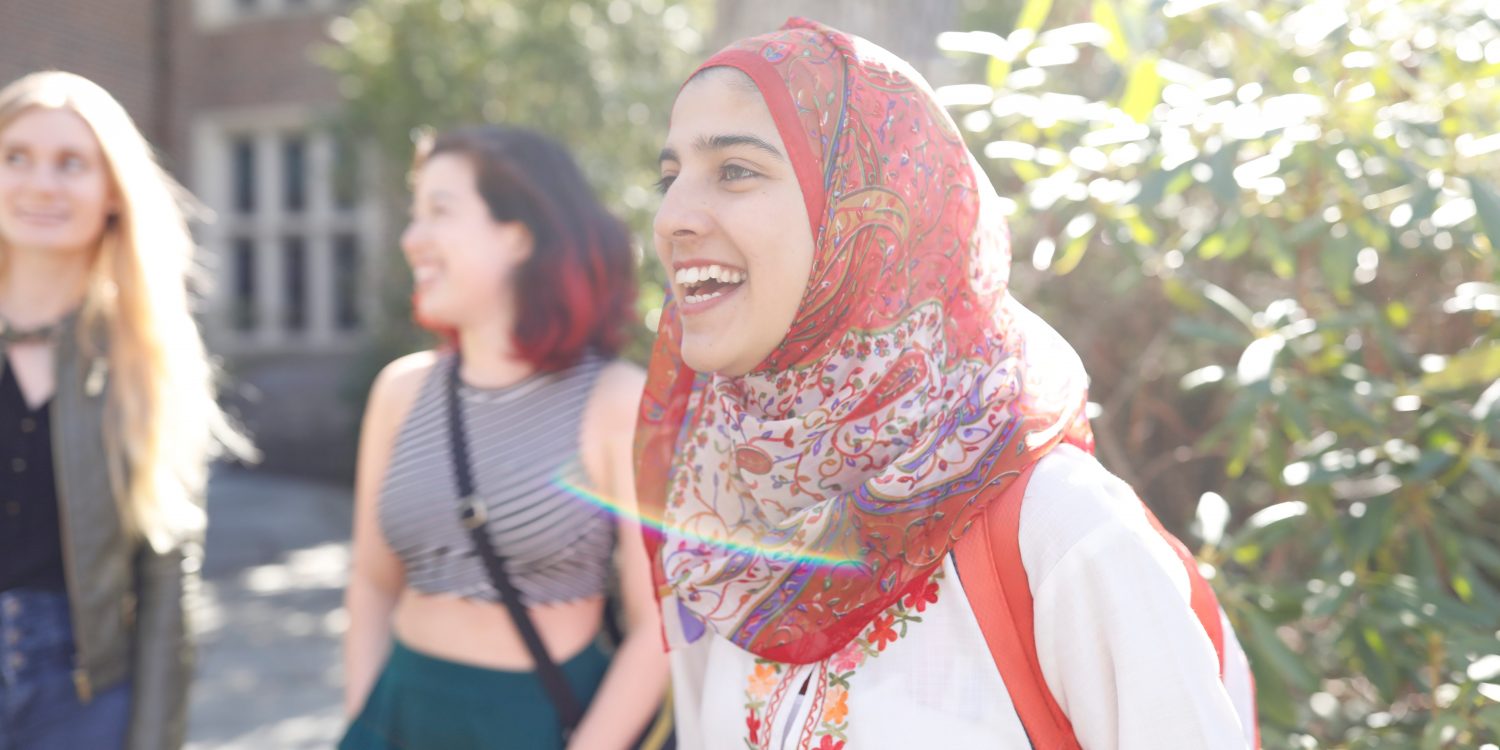My thesis occupies a substantial portion of my life, and it tends to come up in conversation, particularly when people ask me to hang out.
“Can you meet to go over the chem results on Wednesday?”
“No, I can’t sorry. I have my thesis.”
“What about Thursday.”
“Maybe at 8pm? Sorry, I have my thesis. I have to go into Boston.”
Thus follows a conversation where I reveal that I’m doing high blood pressure research in a lab at Brigham and Women’s hospital and yes, I’m really enjoying it but it’s a lot of work. I’ve noticed that if I mention this to first years or sophomores, their eyes go a little wide and the number one question I get asked is “So…how did you do it? How did you get into that lab?”
So I figured it would be pretty useful to future Wellesley students to just share my experience and how I ended up sitting at a desk in Longwood Medical Area while my Western blots rock gently in wash buffer. I try to avoid talking about these things, because I’ve felt the sting myself of feeling irreplaceably behind my peers. But sophomore me legitimately did not understand at all how people could end up in labs, or internships, or anything, and so I’ll just share my process with you in the hopes that it shows you that you can start off doing anything and end up doing what you want.
I’m going to summarize the past few years of my life in a few sentences. First year, I stepped foot in a Wellesley population genetics lab for the first time, lost, a little scared, but mostly thrilled to be seeing research first hand. That summer, I found myself editing podcasts for a family friend, Julie. She was wonderful, and I worked for her for some time, eventually with a stipend. I knew all along, however, that I wanted to be in the research lab. Sophomore year, I applied to undergrad research summer programs and got rejected from all of them. Julie encouraged me to write a few cold emails to an inspiring woman she’d worked with on cultivating a TEDTalk, Dr. Goland, who was the director of the Naomi Berrie Diabetes Center. I sent an email but didn’t hear back for months.

Photographic evidence of sophomore me synthesizing crude oil in orgo lab (i did not know I was making crude oil)
July. I got the e-mail that the Berrie Center was looking for someone to help with data entry in their clinical policy database. I was in NYC the next week. I spent the summer filling out a survey hundreds of time, and slowly falling for the spirit of hope in the place, importance of the work they were doing…meeting the wonderful kids living with Type I Diabetes, seeing the though behind the clinical decisions. Slowly, I realized that what I really wanted was to be upstairs, doing diabetes research. I was determined to make my growing passion into my senior thesis project. I spoke with Dr. Goland about my goal to find a diabetes lab near Boston for my project, and she agreed to write me a letter of recommendation.
March, Copenhagen. I sit in the Black Diamond Royal library, scanning through what seems to be every diabetes lab in the Boston area. It feels overwhelming, just reading their dense scientific literature, understanding it well enough to think up my own experiments I’d like to propose. Being abroad has given me an abundance of time. With the help of my academic advisor, I start to formulate five carefully written cold emails. My background, why I wanted to be in their lab specifically. I went to cafes and read science papers. It was a difficult process.
I don’t know whether it was the letter of recommendation, or actually reading each lab’s publications, or what factor exactly caused this but I ended up with a 75% interview rate with each of these labs. And they were big name labs at Harvard, and I was intimidated. I remember calling my Wellesley advisor, overwhelmed by the prospect that I had no idea how to interview, I had never used Skype before in my life, and…what was I going to say for an hour?
I guess it went well, and all my note taking and experimental design and hours in the library paid off, because I ended up with a series of offers which let me choose the best lab for me. I ended up at the Brigham because I wanted a wet lab (not clinical research) for my thesis, and I wanted it to be more focused on basic biology than having to learn an entirely new field like immunology. I also picked it, frankly, based on the personalities of the principal investigators and whether I thought we would get along, which I hugely recommend. You want your relationship with the lab to be beyond just productive, you want it to be supportive of your goals as well.
I hope sharing my experience helps some of you, especially all the high school students who love science but may be unfamiliar with the wide world of research. Things will work out, and don’t be afraid to let yourself be swept up in new directions.
Ever lovely yours,
Eleanor

